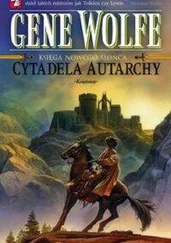Gene Wolfe - Soldier of Sidon
Здесь есть возможность читать онлайн «Gene Wolfe - Soldier of Sidon» весь текст электронной книги совершенно бесплатно (целиком полную версию без сокращений). В некоторых случаях можно слушать аудио, скачать через торрент в формате fb2 и присутствует краткое содержание. Жанр: Фэнтези, на английском языке. Описание произведения, (предисловие) а так же отзывы посетителей доступны на портале библиотеки ЛибКат.
- Название:Soldier of Sidon
- Автор:
- Жанр:
- Год:неизвестен
- ISBN:нет данных
- Рейтинг книги:3 / 5. Голосов: 1
-
Избранное:Добавить в избранное
- Отзывы:
-
Ваша оценка:
- 60
- 1
- 2
- 3
- 4
- 5
Soldier of Sidon: краткое содержание, описание и аннотация
Предлагаем к чтению аннотацию, описание, краткое содержание или предисловие (зависит от того, что написал сам автор книги «Soldier of Sidon»). Если вы не нашли необходимую информацию о книге — напишите в комментариях, мы постараемся отыскать её.
Soldier of Sidon — читать онлайн бесплатно полную книгу (весь текст) целиком
Ниже представлен текст книги, разбитый по страницам. Система сохранения места последней прочитанной страницы, позволяет с удобством читать онлайн бесплатно книгу «Soldier of Sidon», без необходимости каждый раз заново искать на чём Вы остановились. Поставьте закладку, и сможете в любой момент перейти на страницу, на которой закончили чтение.
Интервал:
Закладка:
Gene Wolfe
Soldier of Sidon
THE AETHIOPIANS WERE clothed in the skins of leopards and lions, and had long bows made of the stem of the palm-leaf, not less than four cubits in length. On these they laid short arrows made of reed, and armed at the tip, not with iron, but with a piece of stone, sharpened to a point, of the kind used in engraving seals. They carried likewise spears, the head of which was the sharpened horn of an antelope; and in addition they had knotted clubs. When they went into battle they painted their bodies, half with chalk and half with vermilion. – HERODOTUS
FOREWORD
SOME YEARS AGO I gave myself the fascinating task of translating two ancient texts in the possession of my friend D.A., scrolls of papyrus discovered in the basement of the British Museum. When I had completed my (admittedly tentative) translation of the second, I declared my work at an end.
A year ago, I received a letter from another friend, the Egyptologist I will call N.D. As is generally known, the ruins of the ancient nation of Nubia now lie almost entirely under the waters of the lake created by the Aswan Dams. Prior to the construction of the dams, strenuous efforts were made to salvage Nubia's archaeological treasures, particularly the famous temple of Isis on the Island of Philae. At that time, the science of underwater archaeology was in its infancy.
It is not so today. Underwater archaeologists, N.D. among them, are probing the depths of the lake and bringing to light many items of interest.
Among these was a sealed vase of post-Pharaonic times. Opened again after two and half millennia, it was found to contain a papyrus scroll written in the Egyptian style with a reed brush, but written not (as was first supposed) in hieratic characters but in archaic Latin. When the first sheets had been translated, N.D. kindly sent a copy of the entire scroll to me.
In translating the whole, I have assumed that the narrator was that of the earlier scrolls. The abundant evidence favoring that assumption will be apparent to every reader. Further, the style is the same, if it can be called that. The narrator (who refers to himself as "L") abbreviates almost every word, creating manifold opportunities for error. He does not punctuate or divide his text into paragraphs, much less chapters. All such divisions are mine. As previously, I have employed the first words of each chapter as its title, and have tried to re-create conversations he summarizes.
The modern reader is cautioned to lay aside all preconceptions concerning ancient Egypt and Nubia. We tend to think the Egyptians morbid, for example, after viewing so many collections of grave goods. It is the opposite of the truth. They loved life, and took loving care of their dead in expectation of a general resurrection.
As the narrator himself was told (as he writes, by a god), the Egypt of the classical period fairly swarmed with divinities. These cannot be organized into a single rational system. Their powers, and importance, varied by place and date, while the priests of each glorified the god they served at the expense of all the rest. Be warned that books purporting to list all the gods of ancient Egypt do not. Be warned also that there is no such thing as THE Book of the Dead. Books of the dead were what today is called a publishing category. Certain elements are common to all; many more depend on which is consulted. Note too that Egypt (which had no more wolves than any other African nation) had a wolf-god, presumably imported at an ancient date from the Near East.
Readers of this third scroll should keep in mind that the Egyptians were famous throughout the Mediterranean world for hard drinking. They seem to have been the first nation to brew beer and the inventors of the beer joint. Beer, the beverage of the Egyptian working class, was drunk from bowls through straws of baked clay. Each drinker was given his straw with his first bowl. When he left, he broke the straw so that it could not be given to another patron. Archaeologists have found millions-literally millions-of these broken straws.
Dancing in taverns and at private parties was segregated by sex. Unmixed wine was drunk at upper- and middle-class parties, which often lasted all night. Egypt produced great quantities of good wine and imported more from Greece. Without the papyrus scrolls that were traded for Greek wine, we would know little or nothing of Homer, Pindar, Sophocles, and scores of other ancient authors. Nor would we have had the first two scrolls written with such desperate clarity by the brain-damaged mercenary who called himself Latro.
Marriage in ancient Egypt was casual in the extreme. Polygamy was common in both the middle and upper classes. A man's chief wife, his hemet, was usually, although not always, his first. A queen of Egypt-Nefertiti is a famous example-was the chief wife of the pharaoh. Our puritanical Egyptologists frequently characterize lesser wives as concubines, but this is incorrect; they too were wives (hebswt). A man of wealth spoke of his wives, not of his wife and his concubines.
No ceremony, religious or civil, was required for marriage. Marriage contracts were negotiated only when property was involved. Marriage normally required the consent of the bride's parents or her guardians, as well as that of the bride herself. Many girls married at twelve.
The "singing girls" who figure so largely in this scroll are ignored or disguised by most of our writers on ancient Egypt. A famous picture found in a Theban tomb shows a half-dozen richly dressed women singing, clapping, and playing musical instruments while two naked girls, smaller in the picture because they were less important, dance. The books that reproduce it, or more often some part of it, rarely explain it. The well-dressed ladies are guests at a party. The naked dancers are singing girls, hired entertainers.
Another picture, not as widely reproduced as the first, depicts a naked singing girl with her instrument. Long-legged, large-breasted, and slender, this Egyptian miss would have fit neatly into any show in Las Vegas. The cleansing passage of thousands of years has reformed the singing girls; they are called exotic dancers, go-go girls, or strippers now, and have been stripped of their priestly protection. Morality is satisfied.
Slavery in ancient Egypt was legal but rare, perhaps mostly because of the many protections afforded slaves by the law. Aside from galley slaves, such slaves as Egypt had were nearly all servants in upper-class households. If a free man married a slave, their children were slaves; to forestall this, the bride was often freed before marriage.
Many writers on popular Egyptology dwell on Egypt's supposed isolation and peaceful character. These suppositions are erroneous to the point of absurdity. The delta lay open to the Mediterranean and seaborne invasion. The as-yet-unidentified "Sea Peoples" struck by sea and overland (from the east) in the time of Ramses the Third. The date would have been approximately 1176 B.C. To the west, the Libyan nomads were numerous and warlike. To the east, Egypt's immense border beckoned any army with sense enough to follow the coast, as the Persians did-twice.
To the south lay the valiant, half-savage nation we call Nubia. The Nubians conquered all Egypt at one point, giving it an entire dynasty of Black pharaohs that lasted from 780 to 656 B.C. The mysterious Hyksos (although often translated as "shepherd kings," this name probably meant "foreign rulers") had overcome Egypt a thousand years earlier, around 1800 B.C.; their rule endured for 150 years.
Not only was Egypt open to foreign invasions, it was subject to internecine fighting of every kind. When the monarchy was weak, local governors behaved as local governors have elsewhere.
Читать дальшеИнтервал:
Закладка:
Похожие книги на «Soldier of Sidon»
Представляем Вашему вниманию похожие книги на «Soldier of Sidon» списком для выбора. Мы отобрали схожую по названию и смыслу литературу в надежде предоставить читателям больше вариантов отыскать новые, интересные, ещё непрочитанные произведения.
Обсуждение, отзывы о книге «Soldier of Sidon» и просто собственные мнения читателей. Оставьте ваши комментарии, напишите, что Вы думаете о произведении, его смысле или главных героях. Укажите что конкретно понравилось, а что нет, и почему Вы так считаете.










